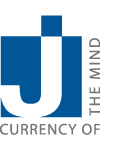What is counseling?
Counseling is a process which helps people understand how painful situations experienced in the past, or perceived as having been experienced, can lead to beliefs that are detrimental in the present. When these experiences, revisited in a safe and trustful environment in the present, assisted by a skilled therapist, they are possible to overcome. Counselling enables people to heal and use their energy in more positive ways, which are otherwise sidetracked and focused on these unresolved experiences.
Why counselling:
There is a common belief that people seek counselling because there is a feeling there is “something wrong” with them. Based on the premise that we all, whether to a minor or major degree, have been exposed to hurtful situations, it appears actually that those who recognize and work in addressing their issues are the ones who, more than most, step onto the path of reaching wellbeing and realizing their full potential. When something is not working well with our car or our house, we call a specialist to solve the issue; however there is a reluctance to seek help when we find that something personal in our lives is not working well or feels unhealthy. Trust in yourself and take the challenge to seek help when needed, you deserve it.

What are the therapeutic modalities that I use in my practice?
My practice is based on different therapeutic methods. However, recognizing that each person is unique, the best approach is to address each case as entirely situational. Within my areas of expertise I focus mostly on the following therapeutic approaches:
- Adlerian psychodynamic principles, which are based on the philosophy that people’s development is driven by their innate ability and need to overcome life challenges, and reach full potential through the pursuit of common wellbeing.
- Rational Emotive Behaviour Therapy, a theory and set of practices based on the premise that distress, rather than caused by adverse circumstances, is generated by how individuals see these events and construct their reality around a perception of themselves, others and the world.
- Cognitive Behavioural Therapy, which focuses on the exploration of peoples’ belief system, and ways to identify and change thoughts that drive emotions and behaviours when these thoughts are not working in ones best interest.
- Body centered techniques recognizing impulses, emotions and sensations emerging from the body to identify, and also heal issues sometimes unavailable through cognition or verbal expression.
- Solution focused therapy, which centers on the vision and outcomes that the client wishes to achieve. The therapist focuses this therapeutic process towards the client’s vision. Both work mostly in the present, recurring to the past events only when needed.
In my professional experience I have consistently observed that practically all financial issues have roots in the emotional issues that drive them, such as:
- Reluctance to follow a budget as it is perceived as a controlling or limiting tool.
- Overspending as a result of a need to satisfy some unfulfilled need, get immediate gratification or fit into internally or externally imposed archetypes.
- Dipping into debt to “meet” the expectations of family, friends and even rivals, or being “accepted and recognized” by our partners, children and loved ones.
- Falsely prove to ourselves that we are “successful” according to “socially accepted principles.”
Whether one or several of the above issues combined, all of them drain our energy, stress us, and in the long run lead to unhappiness. All are symptoms of something more intriguing which has been recently coined by modern medical experts as “Emotional Debt”.
What is Emotional Debt?
According to Dr. VM Simon it is “the commitment acquired by an individual to her or his ideal self under the basis of an emotion originated by an object only existing in her or his imagination”. As it happens in acquired financial debts, emotional debts can be paid or remain unpaid.
Anger is perhaps the most commonly used human emotion particularly by men, as it is socially “acceptable” for men to get angry instead of crying, as just one example. Biologically, anger is a natural response to enable survival; hence we cannot rid ourselves of it, but rather need to learn to manage it. Though anger is a secondary emotion, this means the result or manifestation of an underlying primary emotion such as shame, fear, un-appreciation, etc., it is a very powerful emotion that can put us and others in difficult situations.
Counselling helps clients understand the mechanics of this emotion, ways to prevent it, de-escalate it once triggered, and most importantly gain awareness about the factors that generate it. Once the prime sources are identified, people are able, not only to control the continued outbursts that put them and others under duress, but most importantly, solve the deeper wounds and beliefs which, unless resolved, will lead to rejection, isolation and unhappiness. Anger treatment is enhanced by communication techniques that teach clients to interact with others in a kinder and more assertive, rather than aggressive, fashion and furthermore make the choice of transitioning from a righteous and entitled mindset towards a wiser self.
Perhaps the utmost responsibility that a human being takes on in life is the decision to become a parent. Regrettably as in many other aspects of our lives, we are not trained in these core disciplines and are left to learn the “hard way,” or as best we can. It is usually assumed that the natural love that children draw out from parents is more than enough to ensure their upbringing will be successful. This mistaken belief might lead towards parenting models that can affect our most beloved ones and inevitably, future generations.
Parenting, rather than the simple idea of becoming “friends” with our children, is furthermore a matter of leadership, whereby parents guide, contain and inspire their children to become who they are meant to be, not who we want them to be, and by using their natural abilities to help them achieve their greatest potential. It then becomes an ability that needs continuous refinement to support our children in the exercise of making wise decisions, by letting them do so but at the same time gently allowing them to experience the consequences of the choices they make.
Parenting counselling provides moms and dads with a safe space where they can define or redefine their goals as parents and examine ways to improve this sensitive, challenging and ongoing duty. With the tools developed here, parents will be able to support the development of young adults who are socially aware, have a solid identity, and are resilient and committed to contribute to their own wellbeing, and that of their families and the world at large.
Compassioned fatigue is the cost of caring for those who are under physical or emotional pain; it takes place when helpers are unable to refuel or regenerate. Over two million adult Canadians with disabilities receive help with every day activities, mostly from family members. The relationship between the caregiver and the care recipient is a complex one, often generating, tension, resentment and guilt. Though it seems paradoxical, to accept help is an act of generosity but at the same time, caring too much can hurt as well.
Whether in an individual or a group context, caregivers require a support system and a safe space where they can release the load that this important exercise entails to avoid burnout. Counselling gives caregivers the opportunity to express their ongoing emotions, set or redefine boundaries and develop self care plans that allow them the capacity to enjoy life, and at the same time, build resilience to continue caring for their loved ones.
The sociable nature of human beings, in addition to the culturally reinforced concept that the ideal state of being is in a relationship, are the drivers to establishing close relationships with others. The success in this task requires more than the strong emotions experienced in the early stages of a relationship. Counselling provides a space for individuals and couples to examine to what extent their needs are met, take individual responsibility for their actions, and explore ways to support each other in fulfilling their goals. In cases where this is not possible or very difficult due to a number of reasons explored here, counselling will assist clients to develop the courage to pursue, and let the other person pursue more satisfactory ventures without the fear of harming themselves or their children, should they decide this is be the best option for both.
According to official statistics, almost 20% of the population in Canada was born outside the country. From this perspective, this kind of population mix requires a Culture-centered counselling approach. This can be defined as the ability to provide effective services to individuals with different world views. I have an appreciation for diversity, respect for ethnicity and the ability to serve non-dominant groups. Most importantly, as an immigrant who has successfully thrived through the adaptation and integration stages of immigration, I bring direct experience which will assist clients who need guidance, support and containment during this challenging and rewarding process.
Overall, people spend more time at work than with their family or friends. These long hours of interaction under circumstances that often entail pressure and stress, can lead to misunderstandings and conflict. Nowadays, managers need more effective leadership, communication and performance evaluation methods to keep their staff motivated and productive. My two decades of experience in senior management roles, paired with extensive training in human behaviour, gives me the ability to assist management and staff in identifying the underlying sources of conflict, while finding effective ways to address them. The idea in this respect is to train people in developing communication, self awareness and conflict resolution skills that will allow prevention, faster resolution, and knowledge so that they on their own can identify future misunderstandings, and take corrective measures in the event they might reoccur.
